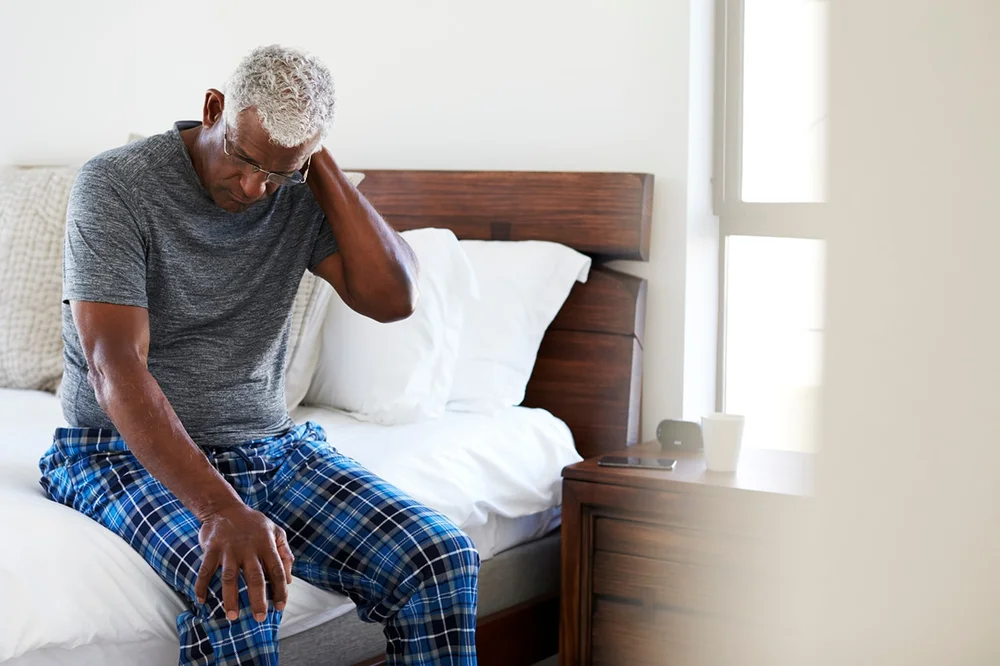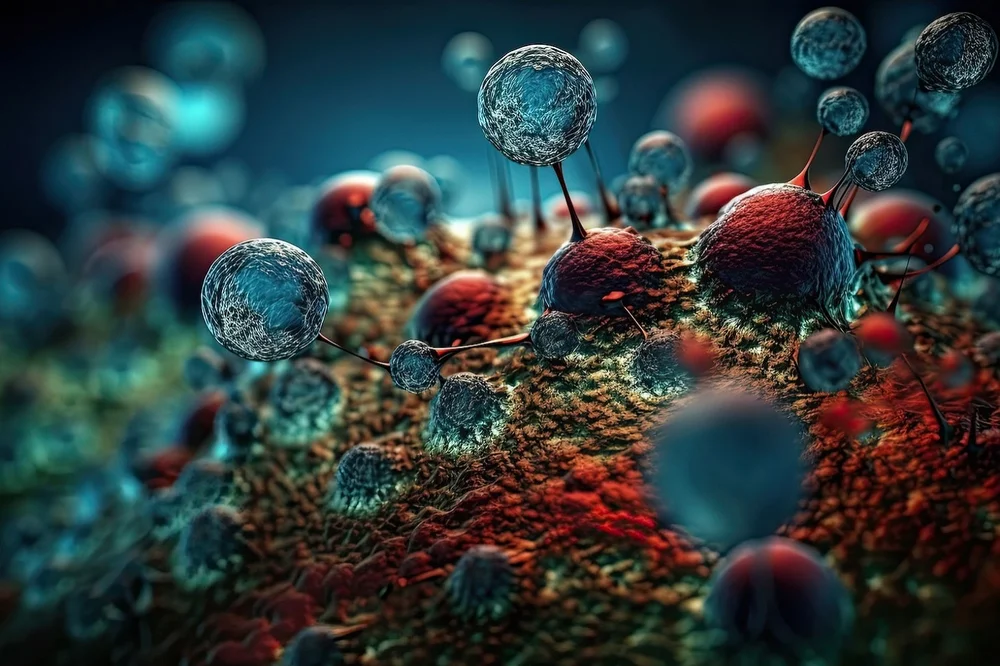When Should You Visit a Doctor If You Have Prostate Problems?
Medically Reviewed by Dr. Nicole Avena
If you’re a man in or approaching your 50s, you might be making multiple trips to the bathroom each night. There could be several reasons for the frequent night flights, including issues with the kidneys, ureters, bladder, or urethra. Another common culprit of nightly urination (nocturia) for many men is an enlarged prostate.
You may be familiar with the biological term from an advertisement or meeting with a doctor for your annual physical.
But what exactly is the prostate? And why does it often become enlarged as men get older?
Here’s what you need to know about the prostate and what steps you can take to keep it healthy.
What Is the Prostate?
Found only in men, the prostate is a gland that sits just below the bladder and surrounds the urethra, which is the tube that carries urine out of the body. About the size of a walnut, the prostate’s main function is to produce seminal fluid.
As a man ages, it’s common for his prostate to become enlarged due to hormonal changes, often leading to issues with urination. If left untreated, an enlarged prostate also can increase your risk of developing other conditions such as urinary tract infections or kidney damage.
Potential Prostate Problems
As the prostate grows larger in middle-aged or elderly men, it squeezes around the urethra, which can block the flow of urine. This can create numerous urinary issues, including:
- Frequent urge to urinate (especially at night)
- Weak urinary stream/dribbling
- Multiple stops and starts
- Pain when urinating
- Incomplete emptying of the bladder
- Feeling like the bladder is full, even after urinating
- Blood in the urine
- Incontinence
Prostate problems may even have negative effects on your sexual function.
What Causes the Prostate to Become Enlarged?

Age is one of the biggest risk factors for developing an enlarged prostate. As men age, their testosterone levels may decrease while their estrogen levels can increase, leading to cell growth in the prostate gland. Family history also may play a role in creating prostate problems as genetics can influence a man’s likelihood of developing BPH.
Other contributing factors include lifestyle choices such as smoking and excessive alcohol consumption. Being overweight or maintaining a sedentary lifestyle also may lead to an increased risk of BPH. Additionally, medications used to treat high blood pressure, high blood sugar levels, and mood issues may worsen symptoms or cause urinary retention.
Making healthy lifestyle choices, such as exercising regularly and maintaining a balanced diet, can help reduce the chances of developing BPH or other prostate/urinary issues.
How to Treat an Enlarged Prostate
Treatment for an enlarged prostate may vary depending on the severity of the condition. In mild cases, your doctor may simply monitor your symptoms and recommend lifestyle changes such as limiting fluids before bedtime or avoiding caffeine and alcohol.
For moderate to severe cases, medication may be prescribed to help shrink the prostate gland or relax muscles in the bladder and prostate. Alpha-blockers are commonly used to relieve urinary symptoms by relaxing the muscle fibers that tighten around the urethra.
In cases where medication isn’t effective, surgery may be recommended. Transurethral resection of the prostate (TURP) is a common procedure that involves removing part of the enlarged prostate tissue using a scope inserted through the penis.
There also are newer, minimally invasive procedures available such as laser therapy or microwave therapy, which use intense heat to destroy excess tissue from the prostate. In general, these options have shorter recovery times and fewer complications than traditional surgery.
It’s important to discuss treatment options with your healthcare provider to determine what course of action is best for you based on individual factors such as age, overall health, and severity of symptoms.
3 of the Best Natural Ingredients to Treat a Prostate Problem
In addition to exercise and other lifestyle measures, getting the right nutrients through diet and supplements can help support the prostate and relieve BPH symptoms. Here are just a few prostate-promoting nutrients you should be getting via foods and supplements each day.
Boron
Boron may help support healthy brain function. It also helps support the body’s utilization of vitamin D and magnesium, which are important for bone health. Also, boron may help maintain healthy testosterone levels and keep the prostate at a normal size.
Foods containing boron include avocados, raisins, and prune juice. To increase levels of the mineral, it’s recommended to take a multivitamin that includes a pure form of boron. BrainMD’s NeuroVite Plus contains 1.5 mg of high-quality boron (as glycinate).
Saw Palmetto
Saw Palmetto (Serenoa repens), a fan-shaped tree with thorny leaves, is native to the southeastern U.S. The fruit of this tree has been used in medicines to treat several conditions, including urinary issues in men. Saw palmetto may help improve the flow of urine and decrease the number of trips to the bathroom at night.
By inhibiting 5-alpha-reductase (which can increase inflammation), saw palmetto may help prevent prostate growth. One study showed that men who received a saw palmetto supplement showed reduced urinary tract symptoms compared to a placebo. For maximum benefit, it’s recommended that you purchase a saw palmetto supplement that’s standardized to 85-95% total fatty acids.
Zinc
This mineral is necessary for the functioning of at least 2000 enzymes and other proteins vital for our life processes. Zinc is crucial for healthy development of the brain and other organs. All our cells need zinc to maintain the structure of their DNA and the actions of their genes, but also for a diverse array of other essential cell functions.
Zinc is crucial for the body’s antioxidant defenses and helps defend against free radical toxins. This mineral also is urgently needed during pregnancy and for childhood development, sexual maturation, and male fertility.
Research shows that many men over the age of 50, especially those dealing with BPH, are low in zinc. One study found that men with an enlarged prostate have an average of 61% less zinc in their prostate tissues than men without the condition. The best way to raise zinc levels is to take a chelated form of the mineral, which can help increase absorption.
NOTE: It’s recommended to consult with a nutritionally-informed healthcare practitioner before starting any supplement regimen.
When Should You Visit a Doctor About an Enlarged Prostate?
An enlarged prostate is a common condition that affects many men as they age. While having an enlarged prostate isn’t always a cause for concern, it’s important to monitor any symptoms you may be experiencing and speak with your doctor if you have concerns.
Though BPH often can be managed with lifestyle modifications, some cases may require additional steps to rectify the issue. If you’re experiencing symptoms such as frequent urination, difficulty starting or stopping urine flow, or a weak urine stream, it may be time to schedule an appointment with your healthcare provider. These symptoms may indicate an enlarged prostate and shouldn’t be ignored.
Also, if you notice blood in your urine or experience pain during urination or ejaculation, seek medical attention right away. These could be signs of a more serious condition and may require immediate evaluation and treatment.
Scheduling regular check-ups with your doctor is a smart way to maintain good prostate health. Men over 50 should discuss risk factors for developing prostate problems and get regular blood work, including a PSA test, if recommended by their doctor.
Early detection and treatment can help manage symptoms and prevent complications down the road, so don’t delay in reaching out to a trained medical professional if you’re having urinary or prostate problems.
Quick Tips to Improve Nightly Urination
- Reduce your intake of liquids 2-4 hours before you go to sleep
- Refrain from drinking caffeine during evening hours
- Limit alcohol consumption, especially during evening hours
- Fully empty your bladder when you urinate
- Try not to take unnecessary medications that can worsen urinary issues
- Exercise your Kegels daily to help improve bladder control
At BrainMD, we’re dedicated to providing the highest purity nutrients to improve your physical health and overall well-being. For more information about our full list of brain healthy supplements, please visit us at BrainMD.



